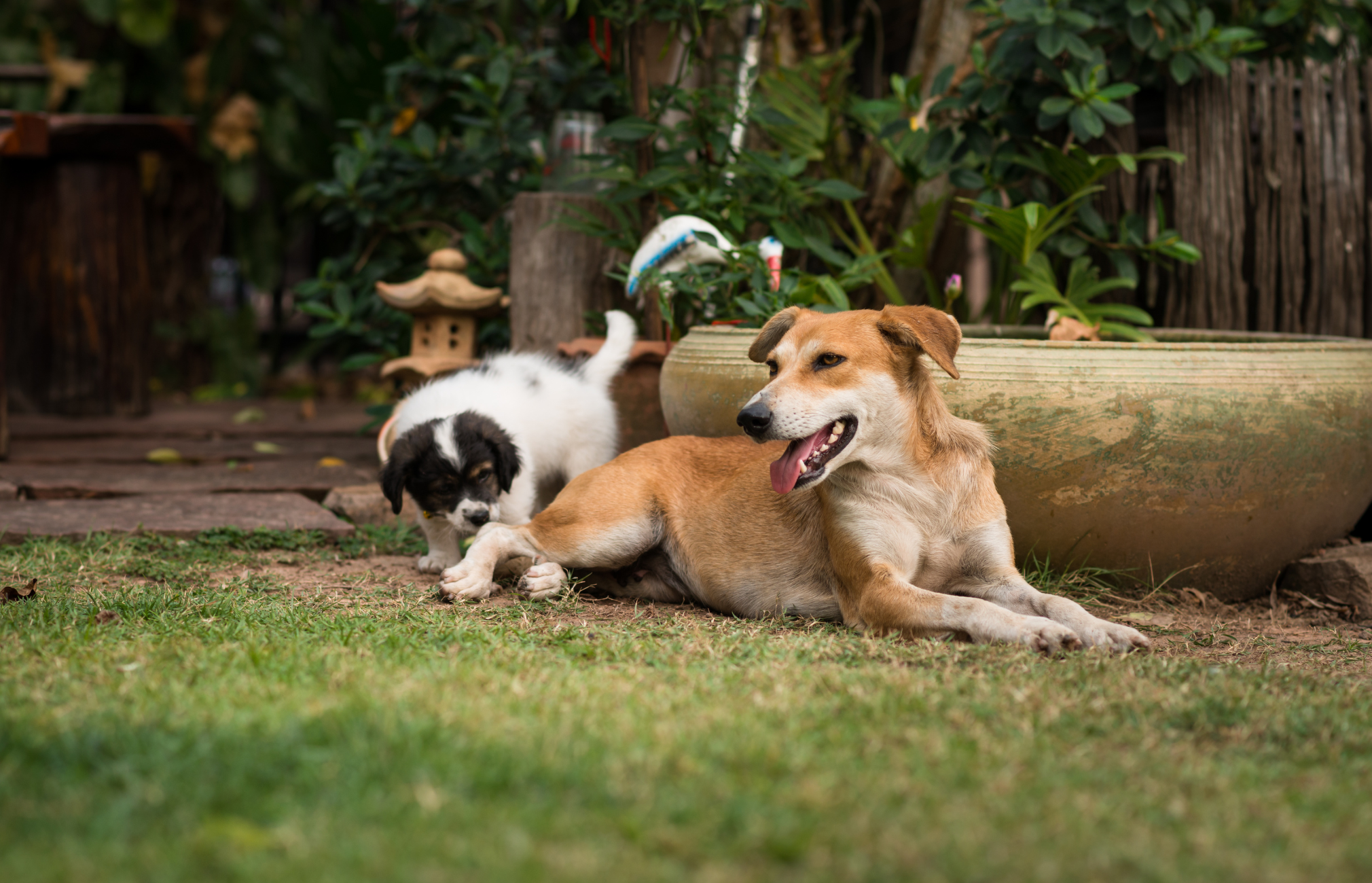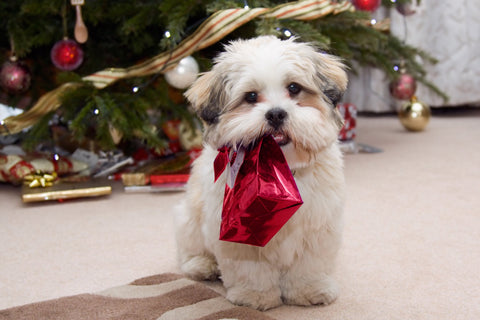Maternal behavior problems in female dogs can seem alarming, but there are several things you can do to help raise the puppies and provide comfort to the new mother.
A female dog usually develops motherly instincts immediately after giving birth. But, maternal behavior problems in female dogs can occur. These are the cases where a female dog doesn't know what to with her litter. She cares less and may sometimes reject them! She may also over-care for her litter and will get aggressive every time somebody goes near her pups, she will even care for other pups and stuffed animals found at home thinking they are hers!
"Maternal behavior problems in female dogs can be A) the lack of maternal instincts (mothering) or; b) the excessive mothering to her pups and other dogs' pups."

In this article, we’ll talk more about this maternal behavior, its signs & symptoms, causes of behavior issues, and how you can properly manage mother dog and her pups when going through this mothering problem.
Maternal behavior problems in female dogs can be A) the lack of maternal instincts (mothering) or; B) the excessive mothering to her pups and other dogs' pups.
Maternal behavior problems in female dogs can be because of the lack of maternal instincts or the excessive mothering to her pups, to other dogs' pups, or to stuffed toys. According to PetMD, though these behavior problems are not yet proven to be caused by any genetic components, there are dog breed that are more prone to developing these maternal behavior problems, like the Jack Russell.
These maternal behavior problems in dogs can develop into a greater cause of concern if not managed properly and addressed immediately.
Signs of Maternal Instinct Problems
Each type of problematic maternal behavior in dogs has it's own signs and symptoms;
Lack of maternal behavior in dogs:
- Does not clean her pups
- Abandons her litter right after delivery
- Does not nurse her pups
- Attacks and sometimes kills or attempts to eat (or will eat) her pups as a redirection of their aggression when threatened by people or other animals
- Attacks or kills her pups when they appear to be different in appearance or smell
Excessive maternal behavior:
- Tries to take, guard and nurse puppies that are not hers and will prevent the real mother from taking care of her pups
- Gets aggressive or attacks anyone that comes near her litter
- Licks, cleans and guards stuffed animals which she thinks are her puppies
Causes of Maternal Behavior Problems in Female Dogs
Stress. Pregnancy and delivery can be very stressful for dogs. Because of too much stress, she may not find the urge to feed pups and may even attack them. Sometimes the opposite happens. Provide your female dog and her pups a comfortable place away from noises and other people & pets at home.
A sick mother dog. If the mother dog isn't feeling well, she will not have the energy to nurse her litter and take care of them. Until your dog feels better, you will have to act as a substitute parent and will have to nurse and clean the pups.
Puppy's condition. A dog's natural instinct will focus on taking care of the healthy ones and will reject or abandon weak puppies or those who have abnormalities. It may go against human instincts, but it is a survival instinct for dogs.
First litter. If this is your dog's first litter, she may be scared and won't know what to do. She will either ignore her pups or be overprotective of them. This can be especially true for dogs who are too young to be mothers.
Birth via CS. If your dog gave birth via cesarean section, she could develop mixed feelings for her litter. During labor and normal birth delivery, there is a high level of oxytocin being released which is responsible for a dog’s maternal instincts to take place. However, during a scheduled cesarian section, there may only be little to no oxytocin released. This lack of oxytocin may cause mother dog to feel indifferent toward her litter.
Caring for the Puppies
Here are some of the things you can do to help manage mis-mothering situations.
If the mother dog rejects her pups or is aggressive toward them:
Proper Feeding. In case mama dog is out of the picture, feeding newborn pups can be critical. You just don’t give the pups any milk (like cow’s milk!) because this can cause diarrhea or gastrointestinal upset. It is best that you consult your vet first on what to give the puppies and on how to properly feed them. Your vet will recommend a milk replacer that’s safe for the pups. Newborn pups must be fed every 2 hours or when they’re hungry because they will begin to cry and move around.
Healthy Environment. With constant supervision, the puppies should have an area to themselves, that is comfortable enough for them and that allows them to freely crawl around. Using a blanket like the Pawtect® Blanket is a great option. This waterproof blanket is soft and cozy and will absorb any liquids the puppies produce.
Comfort Dry. Your pups must be kept warm and dry at all times. Newborn pups still cannot generate their own heat and still rely on their mother dog or on other pups for heat. Look for external heat sources to keep their den warm. You can use heating pads in the area. But make sure it is strategically placed to avoid frying out the pups! You can also line their den with newspapers, towels, or Pawtect® Pads to act as whelping pads! These Pawtect® Pads are pads that are best in class absorption and odor control, absorbing any liquid or moisture instantly with our WickQuick® proprietary fabric.
If the mother dog is overprotective of her pups:
Create a Safe Space. It’s best that you provide your female dog and her pups a comfortable safe place that’s away from noises and other people & pets at home. Make sure their safe place is warm, dry, and cozy by placing Pawtect® Blankets down for the puppies to lay on. Pawtect® Blankets are waterproof blankets made with a special faux fur fabric that does not only keep your mother dog and her litter warm but also dry and mess-free.
Give Privacy. Place the whelping box away from other people and other pets at home as their presence may cause mother dog to become even more overprotective.

"With constant supervision, the puppies should have an area to themselves, that is comfortable enough for them and that allows them to freely crawl around."
Maternal behavior problems in female dogs can be one of the trying times but keeping an eye on your female dog & her pups and being ready enough to act as substitute parent, whatever happens, is more than enough to make it through.









